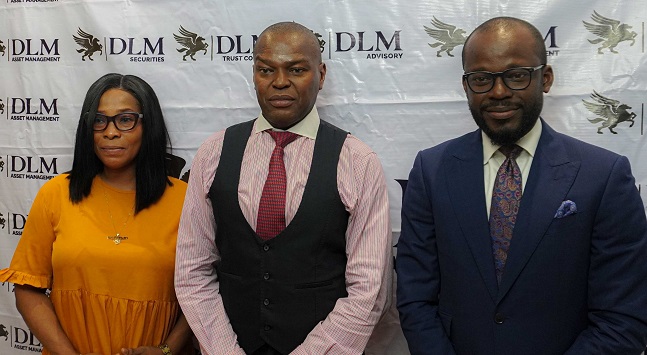E-Financial
Blockchain Hackers Stole $3.8Bn in 122 Attacks in 2020

The year 2020 was challenging for cybersecurity and the world in general. The global pandemic did not only threaten our physical health but also gave way to a new wave of cyberattacks endangering our digital lives.

It seems that the worldwide chaos hardly affected the blockchain world as cryptocurrencies, such as Bitcoin, saw a significant rise in their value by the end of 2020.
Nevertheless, the blockchain sector did not evade cyberattacks last year.
Atlas VPN team found that blockchain hackers stole nearly $3.78 billion in 122 attacks throughout 2020.
Blockchain-linked attacks that happened last year alone account for almost a third (33%) of all time hacks aimed at blockchain projects.
The numbers are based on the data provided by Slowmist Hacked, which aggregates information about disclosed attacks aimed at blockchain projects, apps, and tokens.
The data also considers blockchain scams, which make up 13% of all blockchain hack events in 2020.
Monetary losses were calculated based on the January 12th, 2021 conversation rate.
Ethereum (ETH) DApps, decentralized applications based on the Ethereum smart contract, were the most frequently breached blockchain target.
In 2020 alone, there were 47 successful attacks aimed at ETH DApps, which cost victims around $436.36 million or $9.28 million per hack.
Cryptocurrency exchanges, businesses that allow their clients to trade crypto to other assets, were also highly targeted last year.
In 2020, there were 28 cryptocurrency exchange breaches, which together amounted to $300.15 million in losses or approximately $10.72 million per hack.
The third spot in the list is occupied by blockchain wallets — digital wallets that allow crypto holders to store their cryptocurrencies.
Last year, hackers launched 27 successful attacks aimed at crypto wallets, netting $3.03 billion or around $112.12 million per hack.
The nature of blockchain wallets makes them the most profitable target to cybercriminals.
Blockchains themselves were also affected by hacks in 2020. The year saw 12 successful attacks launched at different blockchains, which brought cybercriminals $5.91 million or $492,517 per each breach.
Next up are Tron DApps and EOS DApps. Like ETH DApps, they are decentralized applications based on specific protocols.
Each type of DApps was breached three times last year. In total, Tron DApp breaches cost victims $10 million or around $3.33 million per hack, while EOS DApps caused damages of $2.85 million or approximately $949,416 for each breach.
Finally, 2020 saw two scams involving Ethereum-based tokens, a type of the token issued solely on the Ethereum blockchain.
However, it is not clear how much financial damage these scams have caused.
In our mid-year report on blockchain-related attacks, we observed a decline in hacks. Now that 2020 finally wrapped up, we can see that the trend persisted till the end of the year.
In 2020, blockchain-related hacks dropped for the first time in the last five years.
The year 2019 saw 133 coordinated attacks targeting various blockchain platforms, apps, and tokens, while in 2020, the number decreased by 8% to 122. While the drop is not very significant, it still indicates an overall decline in blockchain-related hacks.
E-Financial
Sofri Microfinance Bank Rejig Digital Platforms for Better Customer Experience

Sofri microfinance bank plans a massive rollout of Point of Sale, PoS terminals for merchants and agency banking in the third quarter of this year.

This is coming against the backdrop of the banks revamp of its digital platforms to support better customer experience.
Paul Adebayo, managing director, Sofri Microfinance Bank, said the bank is technology and purpose-driven, with focus on financial inclusion and sustainability. As well with the determination of making banking simpler, inclusive, and impactful.
He said that the revamped mobile app features, faster onboarding, cleaner interface, real-time alerts, enhanced security and seamless loan applications.
“Our corporate internet banking Launched for SMEs and institutional clients features, secure payments, transfers, account management and enhances business banking experience.
“Laying the groundwork for greater reliability, product innovation and operational efficiency is our new core banking infrastructure. This change enables us to scale faster and serve customers better.
“Our Terminal Management System (TMS) improves the performance, uptime, and remote monitoring of our POS terminals. This ensures merchants and field agents enjoy better stability, quicker settlements, and stronger support,” he added.
On sustainability impact, Adebayo, added that Sofri Microfinance bank is embedding ESG principles into its lending and operational models — from offering green financing options, to supporting waste-to-wealth entrepreneurs, and making inclusive finance part of Nigeria’s circular economy.
Sofri is a trademark of Links Microfinance Limited (Links Mfb). Links Mfb is licensed and regulated by Central Bank of Nigeria (CBN) and deposits insured by the Nigeria Deposit Insurance Corporation (NDIC). Links Mfb is a member of DLM Capital Group, owners of DLM Asset Management as regulated by the Securities and Exchange Commission (SEC).
E-Financial
DLM Group Unveils Innovative Sovereign Bond Backed Composite Notes

Current market research has confirmed that buyside investors are increasingly focused on high-growth sectors such as small businesses and consumer lending— sectors that fuel both the demand and supply sides of the economy.

However, capital allocation to these areas requires robust risk mitigation frameworks to preserve principal and ensure returns that are not just economically viable but outpace inflation.
Against the backdrop that DLM Capital Group has developed an innovative solution – the Sovereign Bond Backed Composite Notes (SBCNs) to meet this critical economy needs.
According to Sonnie Babatunde Ayere, the Group CEO of DLM Capital Group, “We believe that the consistent issuance of SBCNs by qualified entities will play a key role in de-risking corporate bond portfolios.
“By blending sovereign-backed security with enhanced yield exposure, portfolio managers gain a rare opportunity to simultaneously increase portfolio safety and performance”.
The first of its kind fixed income product combines the security of direct sovereign bond-backed principal protection, such as FGN Bonds, with the enhanced yield potential of corporate and consumer lending cash flows. This hybrid structure, the first of its kind in the local market, merges public-sector credit safety with private-sector income generation.
The instrument is designed as such that the private sector credit tranche will be secured by the FGN-bonds, which will be the senior tranche.
The N30 billion Sovereign Bond Backed Composite Notes issued by DLM Funding SPV Plc is being packaged as a AAA-rated note. With a held-to-maturity yield of 49.9 percent, the notes are designed to be attractive to institutional investors seeking a balance between capital preservation and superior returns.
Sonnie Babatunde Ayere, noted about the SBCN, “For asset managers, it enhances portfolio quality, improves credit profiles, supports diversification, and delivers competitive returns.
In a media parley describing the instrument, Ayere highlighted the role of the instrument in driving credit expansion to the underserved private sector. He highlighted how the note could help drive institutional capital into sectors that were previously considered too risky.
“By channeling domestic capital into these critical but underserved sectors without exposing investors to excessive risk, it becomes possible to mobilize funding for parts of the economy that have long been neglected.” He added.
E-Financial
Fidelity MD,Onyeali-Ikpe Champions Lifelong Learning and Sisterhood for Women’s Career Growth

Dr. Nneka Onyeali-Ikpe, Managing Director and Chief Executive Officer of Fidelity Bank Plc, has encouraged women professionals to embrace continuous learning, courage, and collaboration as key habits for achieving long-term career success and breaking through professional barriers.

Managing Director and Chief Executive Officer of Fidelity Bank Plc, Dr. Nneka Onyeali-Ikpe, OON, (Middle) flanked by participants of a Women’s Roundtable themed, “Mentorship with Dr. Nneka Onyeali-Ikpe” hosted by the bank over the weekend at the Fidelity SME Hub, Gbagada, Lagos recently.
She gave the charge during a Women’s Roundtable hosted by the bank over the weekend at the Fidelity SME Hub in Gbagada, Lagos. Themed “Mentorship with Dr. Nneka Onyeali-Ikpe”, the event drew female professionals from various sectors and was held under the Recognition and Networking arm of the bank’s HerFidelity Proposition—a flagship initiative designed to empower women entrepreneurs and professionals across Nigeria.
Explaining the vision behind HerFidelity, Dr. Onyeali-Ikpe noted that the initiative was born out of a strong need to provide women with holistic support beyond access to finance.
“In my engagements with women across different industries, I’ve seen first-hand that while talent and ambition abound, many still lack access to capital, skills development, health support, and networks,” she said.
“HerFidelity was created to bridge that gap by focusing on four key pillars: access to capital, capacity building, wellness for work-life balance, and entrepreneurship support. It’s one of the initiatives I’m most proud of, because when women thrive, communities prosper and economies flourish.”
The interactive mentorship session, held in a Q&A format, offered participants an opportunity to learn directly from the trailblazing CEO, who shared personal experiences and career insights.
Advising young women aspiring to leadership, she said: “Believe in yourself, be ready to work hard, and never shy away from taking smart risks. Seek out mentors, invest in meaningful relationships, and above all, collaborate—because no one truly succeeds alone.”
The event also featured fun competitions and giveaways, with attendees winning exciting gifts courtesy of Fidelity Bank.
Dr. Onyeali-Ikpe’s session left participants inspired, reinforcing Fidelity Bank’s position as a champion for gender empowerment and a leading supporter of women’s advancement in business and leadership.

 General News2 days ago
General News2 days agoNASRDA, Galaxy Space Firm Sign MoU on Satellite Connectivity

 Telecom2 days ago
Telecom2 days agoOver 1m Nigerians Reached through MTN Staff’s Digital and Community Outreach

 Telecom2 days ago
Telecom2 days agoMafab Gets 0724 Number Series, Launches Mcom 5G Brand

 News2 days ago
News2 days agoDBN Awards N13m in Grants to Tech Startups

 Telecom2 days ago
Telecom2 days agoNCC to Name, Shame Telecom Infrastructure Vandals

 News2 days ago
News2 days agoFCCPC Shuts France, Belgium, and Italy Visa Centres in Abuja Over Alleged Consumer Rights Violations

 Telecom2 days ago
Telecom2 days agoWSIS Review: Nigerian ICT Leaders Urged to Shape Global Digital Future

 E-Financial2 days ago
E-Financial2 days agoBank Customers Petition CBN over Illegal Deductions, Demand Action




























